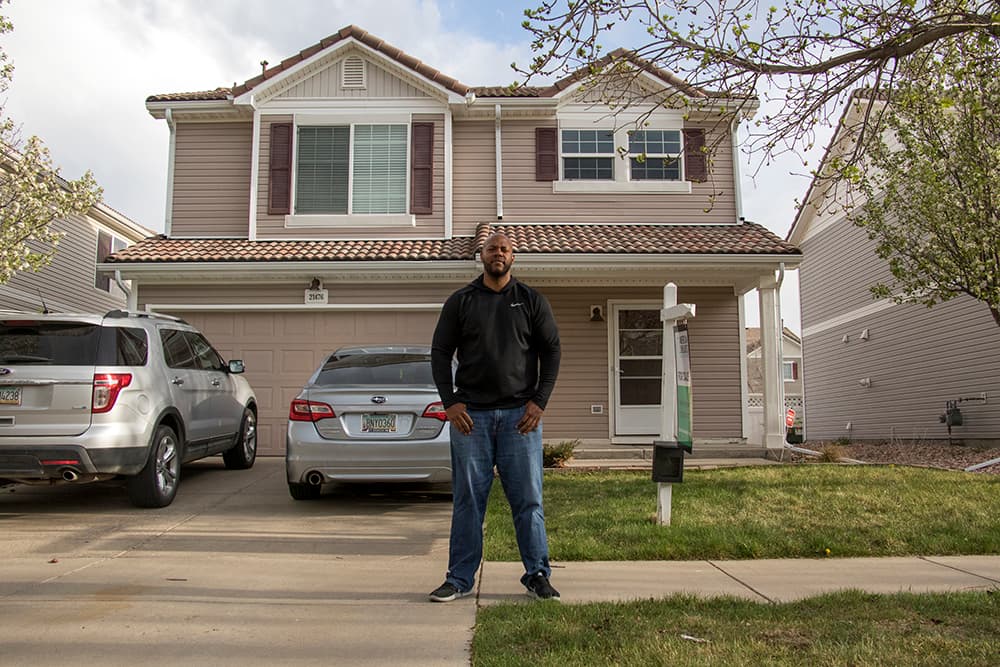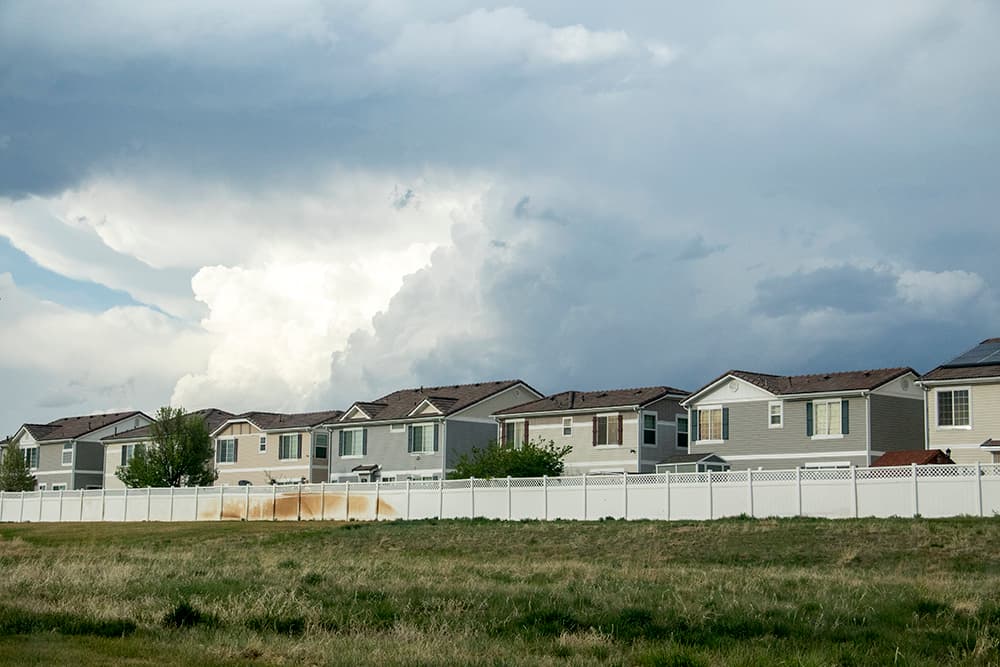
Mark Eggert is stuck in limbo. He and his wife are among more than 300 homeowners in Denver who may be violating the rules of an affordable homes program.
"Me and my wife just got married last June. It’s just been stressful throughout the entire process. And since we’re not really both legal people — we never expected to have to deal with an attorney," said Eggert, a 31-year-old who works in the mortgage industry.
"We just don’t know what to do."
Recently, city officials have said that they could make exceptions for people who accidentally broke the rules, potentially allowing them to stay in their homes.
But that could take months more to settle out. And few if any cities have ever faced a problem like the one Denver is dealing with, according to one national expert.
In the meantime, homeowners like Eggert and Marcus Brockman, pictured above, are weighing their options: Sell. Sue. Or try to stay put.
How did this happen?
Eggert bought his home for $213,000 late in 2015.
He and his wife were the fourth owners -- and they weren't the first to potentially run afoul of the program. At one point, it had passed through the hands of an LLC, which is generally not allowed. And the previous owner paid more for the house than should have been allowed, Eggert said.
"It’s unfair that I just happen to be the one in the house at the time when the city decides to implement their policy," he told Denverite.
"The previous owners that also were out of compliance, nothing was affecting them — they have now sold the house and have no liability."
Restrictions on these homes are supposed to be conveyed from one owner to the next. Each new owner is supposed to submit an application to the city's Office of Economic Development, which checks the buyer's income against the limit.
When Eggert bought the house, he had a title company run a standard search for potential problems with the property's deed. A clause in the title commitment referred to another document -- which, as it turns out, explained the rules of the affordable housing program.
Eggert said that no one pointed out the finding. But that type of document should be a red flag for a mortgage lender, according to Mark Berry, an attorney with expertise in affordable housing.
"That should alert any potential lender that wants to loan money for the purchase of the home," he said. (He was speaking generally, not in reference to Eggert's case.)
"If they’re doing their job, they’ll see those documents. That lender would be a fool to loan money on that."
Mayor Michael Hancock's office also has put some blame on the title companies themselves, saying that in many cases the affordability requirements were put in the wrong section of documents.
"The failure of the title companies to perform due diligence has put the city’s affordable housing stock at risk by taking homes away from those who are income-qualified," Hancock wrote in a letter to regulators.
" ... (M)y greater concern is that Denver residents who relied on the title companies to provide them assurance of good title to their homes did not in fact obtain good title."

What's the city's responsibility?
There are more than 800 affordable homeownership programs in cities around the United States. Many of them operate under the same model as Denver.
"It was something that a few cities did in the '70s, a good handful in the '80s, and they’ve been picking up steam ever since," said Rick Jacobus of Street Level Advisors, a national expert on the topic.
Yet few if any have run into problems like Denver's, he said.
"Every city struggles with the task of monitoring affordable homeownership units but problems are rare and, where they happen, they are usually limited to a handful of units," he wrote in a follow-up email to Denverite. (Disclosure: Jacobus previously did some consulting with Denver's OED.)
Denver's situation, he said, could be a lesson to other cities about the value of staffing and proactive monitoring. A 2007 study by Jacobus showed that the city had fewer compliance staffers than the nine other cities in the study. The city has since rearranged its program to include a larger team to ensure compliance.
However, officials have not said whether they'll institute new controls, such as automated programs that could track when homes in the program are sold.
Denver's looking for another way.
So far, the city has offered a few options to affected homeowners.
First, they can try to prove that they actually did qualify for the home. That involves proving that their income was below the limits when they bought the house, or at present.
And if they didn't qualify for the home when they bought it, they can sell it at a restricted price to a qualified buyer.
The challenge is that the below-market price may not leave families enough money to afford a full-priced home. (Generally, the restricted homes can appreciate about 5 percent yearly, while the housing market has accelerated far past that.)
"We’re originally from Michigan. Eventually, we want to move back there," Eggert said. "We were expecting to put the equity in the house we had here to buy there."
Recently, city officials have held out one possible solution: Homeowners could somehow be allowed to stay in their houses, as OED director Eric Hiraga suggested in an interview with 9News.
"We’re exploring creative ways to stay true to the purposes of the program, while at the same time avoiding displacement," said OED spokesman Derek Woodbury. Those changes could require changes to the city ordinance, Hiraga said.
But there's no promise yet. So, the city is asking homeowners to sign up for its "compliance resolution program," which will protect them from enforcement for six months as they talk about solutions.
City officials say that homeowners aren't giving up any rights if they do that.
Some homeowners aren't ready to believe that.
Marcus Brockman, a homeowner in northeast Denver since 2015, has had two potential sales fall through this year. First, he found that he could only sell his home for $271,000 -- nearly $50,000 short of the offer he had received, he said.
More recently, he was ready to sell the property under the rules of the program, but the buyer backed out as the income-verification process stretched on for several days, he said.
Now, he's not sure what to do. He's opening a claim with the title company that could win him back the lost gains -- but after all he's been through, he said, he's not ready to trust the city's mediation program.
"I don’t buy anything the city’s saying," he said.
The city's trying to win that trust back, offering office hours in the affected neighborhoods. "We're targeting all the households that we haven't heard back from," Woodbury said, "to have questions answered."
Have you been affected by affordable homeownership problems in Denver? Email me.












